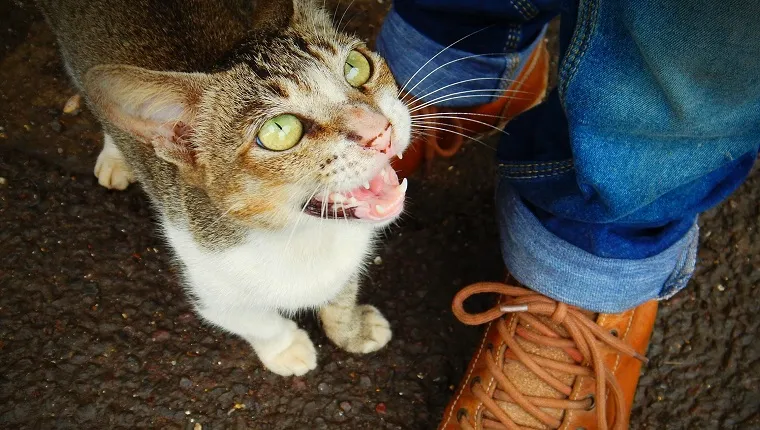Hello, fellow cat aficionados! If you’ve ever been woken up in the middle of the night by the eerie sounds of your feline friend belting out a symphony of yowls, you’re not alone. This intriguing behavior is known as “caterwauling,” and today, we’re delving deep into the world of feline vocals to uncover the mysteries behind it.
Caterwauling Unveiled: A Cat’s Midnight Serenade
Let’s start with the basics: What exactly is caterwauling, and why do cats engage in this unusual form of communication?
The Caterwauling Conundrum
Caterwauling is the term used to describe the loud, often unsettling vocalizations that cats make, usually during the nighttime hours. These vocal outbursts can range from mournful yowls to high-pitched screeches and are not always music to our ears.
The Why Behind the Howl
Now, the million-dollar question: Why do cats caterwaul? There are several reasons behind this vocal behavior, and they’re not always as straightforward as they may seem.
The Love (or Lack Thereof) Song
Caterwauling often occurs during the breeding season and is closely linked to feline mating behavior.
Love in the Air
Mating Calls: Female cats in heat will often caterwaul to attract potential mates. These yowls are their way of saying, “I’m ready for love!”
Male Competition: On the flip side, male cats may caterwaul to compete for the attention of a female in heat. It’s like a feline battle of the bands.
The Territory Wars
Cats are territorial creatures, and caterwauling can also be a way of marking their turf.
Keeping Intruders at Bay: Cats may caterwaul to warn other cats to stay out of their territory. It’s like a vocal “No Trespassing” sign.
Communication with Neighbors: Caterwauling can also serve as a form of communication between neighboring cats. They may be saying, “I’m here, and I’m not going anywhere!”
The Call of the Wild
Sometimes, caterwauling has less to do with love and territory and more to do with your cat’s primal instincts.
The Hunt Is On
Cats are natural hunters, and when they hear the sounds of potential prey, like birds or rodents, they might respond with caterwauling. It’s their way of saying, “I want that bird, and I want it now!”
When to Be Concerned
While caterwauling is a natural behavior for cats, there are instances where it might be a cause for concern.
Health Matters
If your cat suddenly starts caterwauling excessively, it could be a sign of an underlying health issue. Conditions like pain, illness, or anxiety can manifest as vocalizations.
Seeking Professional Help
If you’re worried about your cat’s caterwauling, it’s always a good idea to consult with a veterinarian. They can rule out any health problems and provide guidance on managing this behavior.
Wrapping Up the Caterwauling Chronicles
Caterwauling may not always be the most melodious of sounds, but it’s an essential part of your cat’s communication repertoire. Understanding why cats caterwaul can help us appreciate this behavior and respond to our feline friends with empathy and care.
So, the next time your cat decides to serenade you in the middle of the night, remember, it’s not just a midnight howl—it’s a feline conversation that goes back thousands of years. And in the world of cats, that’s a pretty significant purrformance!
- Best Hunter.io Alternatives for 2025 - April 19, 2025
- Best Lead411 Alternatives for 2025 - April 19, 2025
- Best Leadzai Alternatives for 2025 - April 18, 2025



